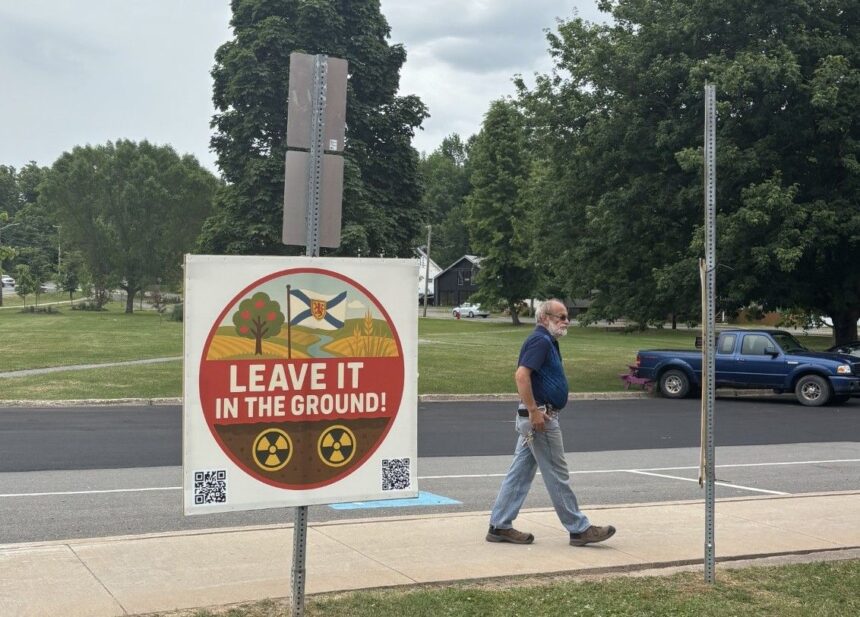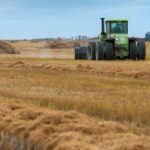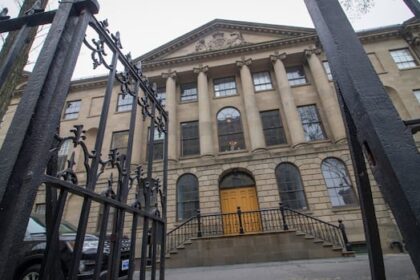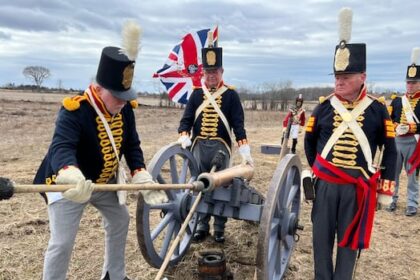Article contentThose reassurances have done little to assuage the fears of local landowners, Trask said.Article content“No, because of what happened with Buddy (Hebb) and getting that phone call and what he was told and he had witnesses, it was on speaker phone,” Trask said.Article contentConflicting government messagesArticle contentHebb, one of four presenters at Saturday’s meeting, issued a news release a week ago, saying that Melissa Sheehy Richard, the Progressive Conservative MLA for West Hants, had reached out to him by phone, requesting that he allow the provincial government to use a road on his property in Leminster, West Hants to access lands where the government wants to explore for uranium. Article contentHebb said he was surprised when Sheehy-Richard told him that the government planned to set up its own department to see what’s in the ground for themselves. Hebb doesn’t think his MLA made the call on her own. “She was saying exactly what the government keeps saying. It was as if she was reading from a script. She kept saying it could be done safely but she could not give me any information to back it up.”Article contentArticle contentHebb turned the minister down.Article contentRushton said Thursday that “any exploration will be done by industry.”Article contentAttempts to contact Sheehy-Richard through her Windsor constituency office were unsuccessful but the premier said MLAs talk to constituents every day.Article content“That’s the job of an MLA, to talk about all kinds of issues. I’m definitely not going to get into a he said, she said, I have great respect for Melissa,” Houston said. Article content“The fact of the matter is that the province has not asked for access across anyone’s roads, it wouldn’t happen in that format. Private industry has said they are not interested in uranium exploration development in Nova Scotia at this time and because they’re not, we’re not. We can write as many stories or have as many he said, she saids as you want but it doesn’t change the fact that it’s not something the province is looking at at this time.”Article contentArticle contentTrask said she can’t guess what the MLA’s motivation was in making the call.Article content“Who knows, it’s all conjecture,” Trask said. Article content“I don’t care to get involved in that, I just want the ban put back in place.”Article contentInherent radiation and pollution risksArticle contentTrask said the No to Uranium meeting was about education on what exploration and mining of uranium looks like, including some clips of a documentary from Elliott Lake in Ontario and a presentation from retired professor and geologist Elizabeth Kosters.Article content Doug Benjamin, an organizer of the No to Uranium meeting at the Windsor Community Centre on Saturday, walks past the sign outside the meeting. Photo by ContributedArticle contentA presentation slide offered some facts about uranium, including that it can’t be mined without inherent radiation and pollution risks and that uranium mining can contaminate drinking water, air and soil with heavy metals and can cause radioactive contamination of water hundreds of kilometres away.Article content“We just don’t want that to happen here,” Trask said. “This is a highly populated area. This is not a political issue. Politics is very divisive and at the end of the day what brings us together is our kids, our kids’ futures, our environment. Article content“This is a human rights issue, not a political issue. I know that politics gets into it but when you know the facts, you know that this does not belong here and that the act of rescinding the ban was not part of our democracy.”Article contentTrask said the meeting provided signup sheets for people who wanted to join committees for organizing future town halls and for fundraising to ease the burden on those who have been doing a lot of the work.Article contentArticle content
Uranium mining: Generating nervous energy, no interest in Hants County










